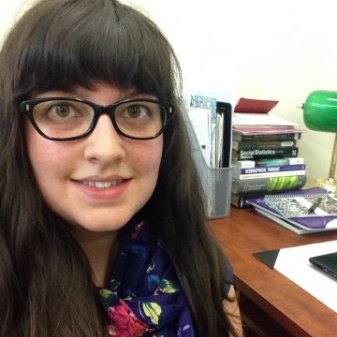Research into Thompson becoming the wolf capital of the world continued this summer with the return on the Memorial University student Bonnie Bishop.
In the summer of 2014, Bishop visited Thompson and asked residents to fill out surveys regarding their thoughts on wolves and Thompson being called the wolf capital of the world. Bishop used the telephone directory to select the residents who would fill out the questionnaire. Sixty-five per cent of the respondents say they like wolves, while only 3.9 per cent said they didn’t.
This summer Bishop returned to Thompson to complete phase two of the study, which focuses on visitors to the Thompson area and their thoughts and feelings, as well as the youth of Thompson. “While I was in Thompson in June and July of this year I collected data from visitors at various visitor hot spots around the city such as the train station and local hotels. In addition, questionnaires are being administered to students in Grade 11 and 12 at R.D Parker Collegiate,” the researcher explained.
Visitors filled 211 questionnaires out this year, and Bishop says the number is sufficient to compare with last year’s data. Her hope is to collect 400 questionnaires from the high school to help compare the data, and feels that this year was a success.
As of now Bishop says in viewing the responses that 77 per cent of visitors did like wolves, but 63 per cent did not know about any plans to make Thompson the wolf capital of the world. “We found that visors are less likely to donate money to support the wolf capital initiative, but are more likely to participate in wolf-related activities.”
Other comments from travellers were the need for more information about the project, and that it’s often too expensive or too inconvenient to stop in Thompson when travelling to Churchill, more specifically when travelling by train, Bishop noted.
The full report with all three data groups will be available next month, and a more extensive data analysis is being worked on to be published in academic journals and to be presented at the Wildlife Society Conference in Winnipeg next month, as well as the Pathways Human Dimensions conference in Kenya in January.
Bishop is hoping to complete her thesis on time and continue her education at Memorial University in St. John’s, Newfoundland, majoring in geography with a minor in biology.




